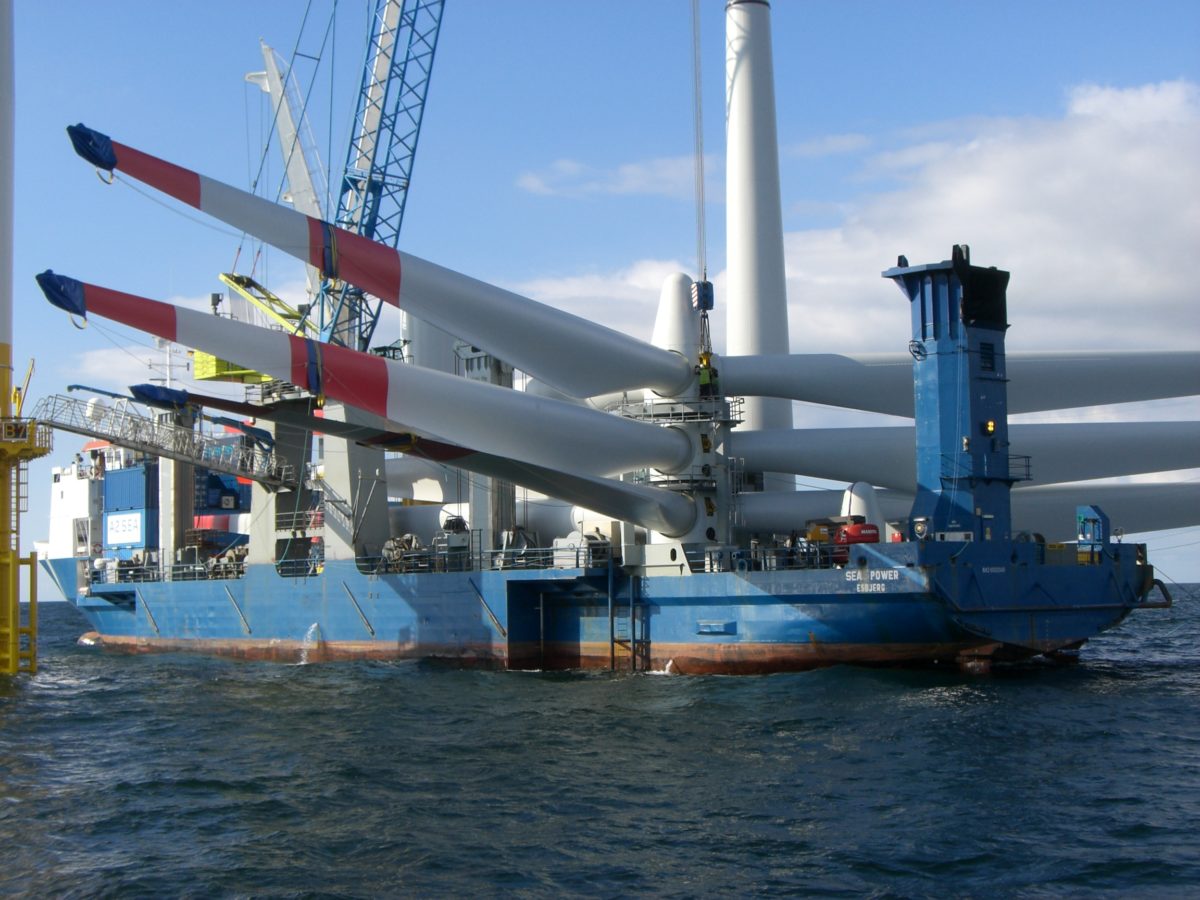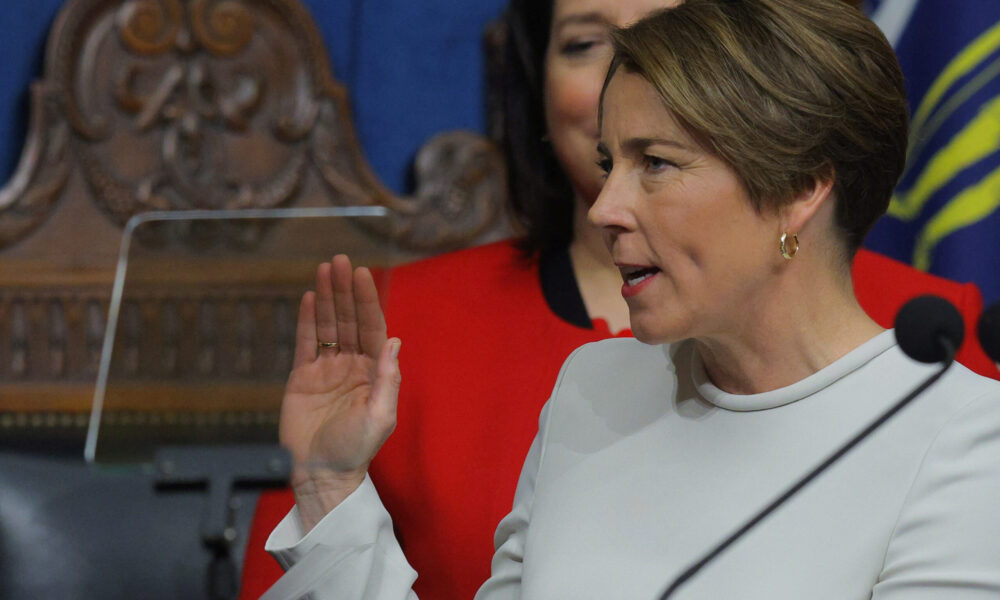NOTE: This piece was originally published on CommonWealth Magazine.
January 2023 marked the beginning of a new year. For Massachusetts, it also marked the beginning of a new administration with the historic inauguration of Gov. Maura Healey, as well as a new legislative session with new (and incumbent) legislators. Both Healey as a candidate, and the legislature during the last legislative session, have made commitments to build on the state’s climate goals to ensure a healthy, more prosperous Massachusetts where no one is left behind and we can all thrive.
As we start the new year, these are three practical actions that I hope the state’s new leadership prioritizes to ensure sustained, bold, and equitable climate action.
Transition to 100 percent clean energy by 2035
The state has already committed to reduce its heat trapping emissions by 50 percent by 2030 and 75 percent by 2040, and to be net zero by 2050. These targets must be matched with the power sector at the forefront by decarbonizing electricity supplies and electrifying other sectors of the economy, such as transportation and home heating. Now is the time to enact legislative proposals such as the 100% Clean Act, which is aligned with Healey’s own campaign commitment.
Our own UCS analysis found that strong requirements to transition to a 100 percent renewable electricity standard by 2035 is technically feasible, even as the state electrifies buildings and transportation. Meeting 100 percent of Massachusetts’ electricity demand with renewables by 2035 can bring multiple benefits, including an 85 percent drop in the power sector’s heat-trapping emissions, more than $1.7 billion in health savings, more than 45,000 additional jobs, and $13 billion in additional state gross domestic product by 2040.
Our analysis shows that a transition to renewable energy is not just one of the most consequential tools at our fingertips to act on climate, but it also represents a great opportunity to increase control over our energy choices, improve the health of our communities and the planet, create jobs and wealth, and much more.

Site energy infrastructure responsibly
Some communities bear a disproportionate legacy burden from decades of siting energy and industrial infrastructure in or near their neighborhoods. In Massachusetts, the Energy Facilities Siting Board is the independent panel that approves proposals for large energy projects, including power plants, electric transmission infrastructure, intrastate natural gas pipelines, and natural gas storage tanks. Unfortunately, the existing siting process has resulted in a high concentration of polluting power plants, electrical substations, and gas compressor stations in environmental justice communities.
Siting decisions for the energy infrastructure needed to accelerate the closure of fossil-fueled power plants and advance electrification of buildings and transportation should ensure that this transition to clean energy does not replicate the same failures of our current energy system overburdening already vulnerable populations.
The siting reform bill does just that. It would ensure that the issues of environmental justice, public health, and climate are included in the Energy Facilities Siting Board’s decision-making process; representatives from environmental justice and Indigenous communities are on the board; communities where projects are being proposed are engaged and have their concerns addressed in advance of project approval; and projects will only be approved by the board if they do not impose additional burdens on an environmental justice community.
The Healey-Driscoll administration considered some of these changes in its campaign platform, including appointing environmental justice community representatives to the board. The siting bill provides an opportunity for the administration and legislators to right a wrong, help overburdened communities, and advance a truly just clean energy transition.

Monitor air quality to improve public health
Our dependence on fossil fuels to generate electricity and power the transportation sector not only is the principal cause of the climate crisis, it also threatens public health, especially in communities already impacted by other pollution sources. Localized air pollution from burning fossil fuels has dangerous health impacts, causing or exacerbating lung and heart disease, asthma, diabetes, and childhood developmental problems, and it leads to premature death. A recent UCS study found that communities of color across the Commonwealth are exposed to at least 30 percent more local air pollution from on-road transportation sources.
To start to address this situation, it will be crucial to increase publicly available air quality monitoring for black carbon, ultrafine particles, and other pollutants in hotspots and corridors so that we can track progress from targeted interventions and realize the greatest improvements for residents most burdened by harmful localized air pollution.
The Healey-Driscoll campaign pledged to “dramatically expand community-based environmental monitoring in overburdened communities across the state, including air monitoring data.” Now is the time to make these commitments a reality by enacting air quality legislation to protect the health of current and future generations.
Hopeful in Massachusetts leadership
Working together, the Healey administration and the Legislature can set an example of how true climate leadership puts people in the center of the clean energy transition, supports good-paying clean energy jobs, grows a prosperous economy, and improves the health of communities in the state and beyond. Here we go, 2023!

